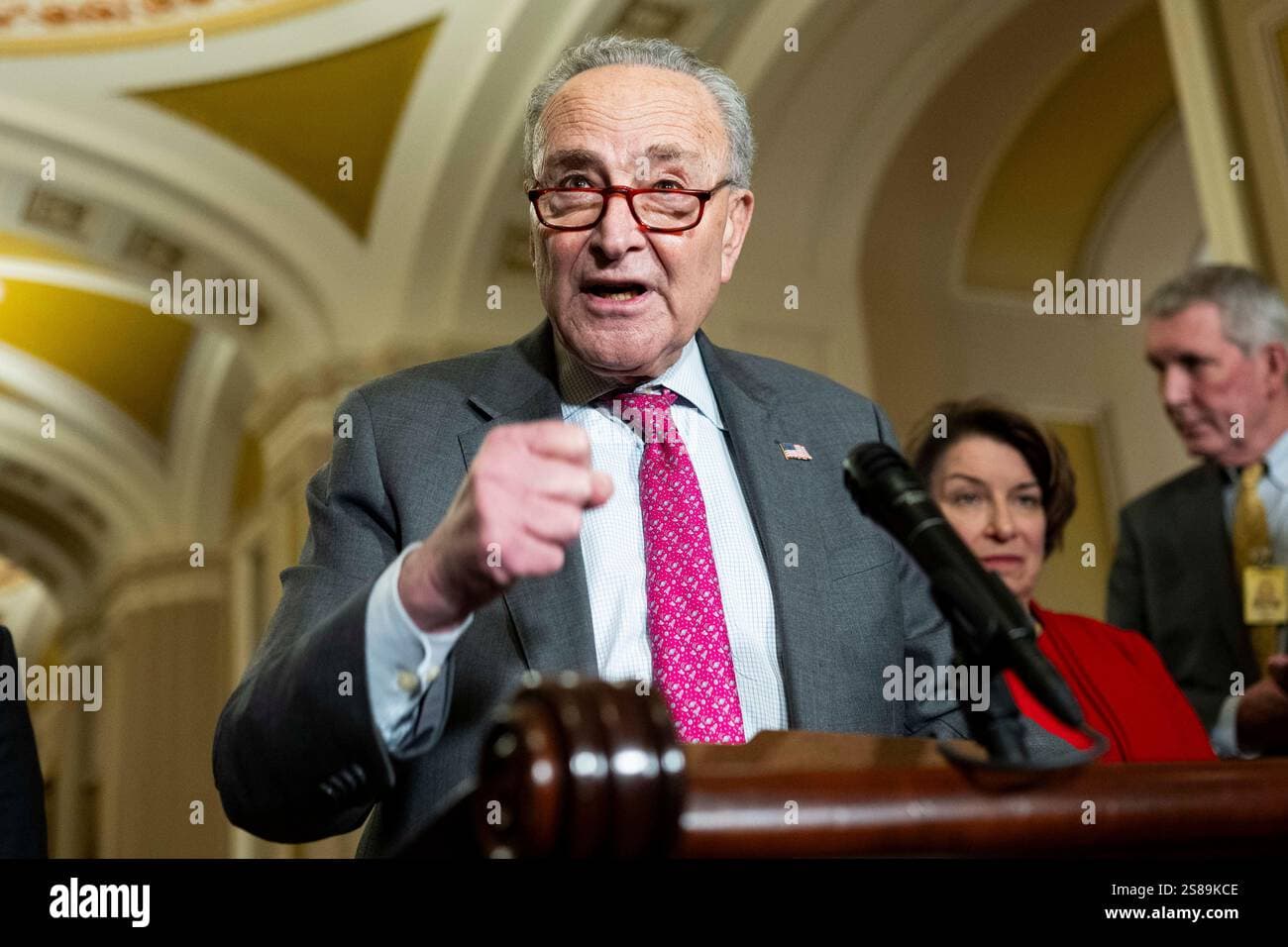Schumer Urges Congress to Extend ACA Premium Tax Credits Now
Senate Majority Leader Chuck Schumer pressed colleagues to act immediately to extend Affordable Care Act premium tax credits that expire at year end, warning that millions of Americans could face sharp premium increases without congressional action. The appeal comes as negotiations on multiple domestic priorities remain stalled, heightening the risk that subsidies will lapse amid end of year funding fights.

Senate Majority Leader Chuck Schumer on Saturday urged Congress to extend Affordable Care Act premium tax credits set to expire at the end of the year, framing the move as urgent to prevent millions of people from losing financial protection for health coverage. His appeal arrived as lawmakers remain deadlocked over a range of domestic priorities and follow weeks of contentious negotiations over government funding.
Schumer said Democrats expect a vote to extend the subsidies, and Republican reluctance to attach new spending to short term funding moves has complicated the path forward. The stalled talks reflect broader tensions on Capitol Hill about whether to pass a standalone extension, incorporate the subsidy continuation into end of year must pass appropriations legislation, or leave the matter to a short term continuing resolution that could omit new spending commitments.
Policy makers and health policy analysts warn that without congressional action, marketplace premiums could rise sharply for people who rely on the tax credits to lower monthly costs. The subsidies, enacted under the Affordable Care Act, are targeted at lower and middle income Americans who buy insurance on federal and state marketplaces. An expiration would shift more of the premium burden back onto consumers and could reduce coverage at a time when insurers are completing rate filings for next year.
Legislative mechanics complicate swift passage. Most broad fiscal legislation in the Senate requires bipartisan support to overcome procedural hurdles, creating a need for votes from moderates in both parties. Some senators who say they oppose new spending on the floor have signaled reluctance to consider any extension attached to short term funding measures, preferring either strict fiscal offsets or a separate legislative vehicle. Democrats counter that a standalone bill or inclusion in year end spending legislation is necessary to provide certainty to millions of families before coverage decisions for the new year are finalized.
Timing adds pressure. With calendar deadlines approaching, negotiations must move quickly so insurers can set rates and consumers can make enrollment choices. Congressional leaders also face competing priorities, including larger appropriations talks and other domestic policy items that have been stalled since the recent extended funding fight. That dynamic increases the political and procedural difficulty of resolving the tax credit question in the remaining weeks of the congressional session.
The outcome will carry clear political stakes for both parties. Democrats are emphasizing the human consequences of a lapse in subsidies and framing an extension as a straightforward step to prevent increased costs for ordinary families. Republicans who resist adding spending to stopgap measures argue against expanding entitlements without offsets, and some are wary of setting a precedent for attaching new benefits to short term funding.
As the clock runs down, the prospect of a vote will test whether congressional leaders can bridge procedural obstacles and ideological divisions to secure a temporary or lasting solution for the millions of Americans who rely on marketplace tax credits to afford health insurance.


